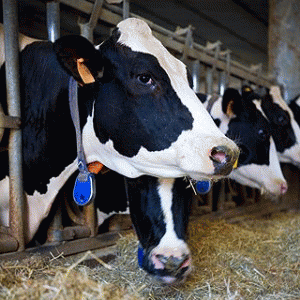Op-Ed by R-CALF USA CEO Bill Bullard
Â
Â
Washington, D.C. Â- The U.S. Food and Drug Administration (FDA) plans to break its promise to American consumers to timely upgrade the animal feed ban designed to protect U.S. consumers and the U.S. cattle herd against the heightened risk of bovine spongiform encephalopathy (BSE, or mad cow disease).Â
Scientific studies have linked BSE to cases of variant Creutzfeldt-Jakob Disease (vCJD) in humans, an invariably fatal disease that most likely results from human consumption of infectious material from cattle with BSE. There have been 212 human deaths in 11 countries caused by vCJD, including the United Kingdom, and there are five known living humans with the disease.  Â
On April 9, FDA published a special filing in the Federal Register giving the public only seven days to comment on the agency's plans to delay the scheduled April 27, 2009, implementation of its upgraded BSE feed ban.
The U.S. faces a heightened risk from mad cow disease because it continues to import millions of live cattle from Canada, where the disease prevalence is between three cases per million cattle to eight cases per million cattle. The U.S. Centers for Disease Control and Prevention (CDC) states this prevalence in Canadian cattle is 18-fold to 48-fold higher than the prevalence in the United States.
The World Organization for Animal Health (OIE) and scientists the world over stated that Canada's heightened BSE risk cannot be effectively mitigated with the basic ruminant-to-ruminant feed ban implemented in both Canada and the U.S. in 1997. Following the detection of multiple cases of mad cow disease in cattle born years after Canada's original feed ban, Canada finally relented to scientists' urgings and upgraded its basic feed ban in July 2007. The new feed ban protects Canadian consumers against known BSE transmission routes: cross-contamination and inadvertent feeding of contaminated cattle parts. Unfortunately, 10 of Canada's 16 native mad cow disease cases were found in animals born after the implementation of Canada's original feed ban.
One year ago, the FDA issued a news release touting its promise to upgrade the U.S. feed ban by stating, "FDA Strengthens Safeguards for Consumers of Beef," and informing consumers that the new feed ban would become effective on April 27, 2009, after allowing time for the industry to adapt its practices to the new requirements.
But even before that, in late 2007, the U.S. Department of Agriculture (USDA) issued regulations that now allow even higher-risk Canadian cattle into the U.S. Â- cattle over 30 months (OTM) of age. USDA's base-case risk model predicts that the importation of OTM cattle will result in the introduction of 19 BSE-infected cattle into the U.S. causing the subsequent infection of two U.S. cattle over the next 20 years. Human exposure to BSE also was predicted to increase by more than 15 percent compared the earlier base-case modeling conducted in 2003 by Harvard University.
The unconscionable irony is that the U.S. is importing millions of higher-risk Canadian cattle Â- allowing them to commingle with the U.S. cattle herd and to freely enter the U.S. human food supply and animal feed supply Â- without affording U.S. consumers and the U.S. cattle herd the benefit of the scientific safeguards implemented by Canada to protect its citizens and its cattle herd from the BSE infectivity known to be circulating in its cattle herd. In short, the U.S. is accepting Canada's higher BSE risk without the protections necessary to mitigate that higher risk. Â
The thousands of U.S. cattle producer-members of R-CALF USA recognize that we have an absolute obligation to protect our U.S. consumers from mad cow disease. Together, the USDA and FDA are undermining our efforts. Under no circumstances should FDA delay implementation of the new feed ban, which already has been found necessary to mitigate Canada's heightened BSE risk, while the U.S. continues to import Canada's higher-risk cattle. Â
Either USDA must immediately eliminate the source of this heightened BSE risk by prohibiting the importation of OTM Canadian cattle, or, FDA must immediately implement the new feed ban to mitigate this heightened risk. There are no responsible alternatives. The FDA has an absolute duty to protect U.S. citizens from the foreign health threat of BSE and must not kowtow to the very industry trade associations Â- the National Cattlemen's Beef Association and the American Farm Bureau Foundation Â- that are fighting to expose U.S. consumers to Canada's BSE risk before Canada can demonstrate that it has eradicated this deadly disease from its cattle herd.  Â
Note: To view/download a copy of R-CALF USA's comments filed with FDA, please visit the "Food Safety" link at www.r-calfusa.com.
                                                                                  # # #
(Note: You can view every article as one long page if you sign up as an Advocate Member, or higher).





